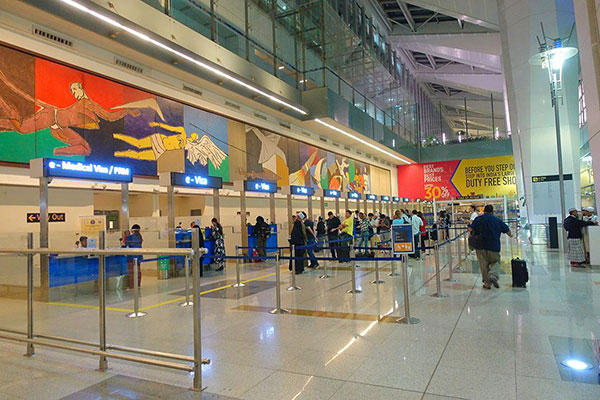The new H-1B domestic visa renewal pilot program is now an option to alleviate international travel headaches for employers and employees.

By Jon Eggert
While the COVID-19 pandemic impacted employers in a variety of ways, the effect on foreign national employee travel might be one of the most long-lasting. The United States implemented significant restrictions on foreign national entry in March 2020. During the pandemic, many foreign nationals felt returning to their home country was either too dangerous or too cumbersome. As the pandemic waned, many foreign nationals returned to their home countries in 2023 for the first time in several years. Not surprisingly, the expansion of travel strained U.S. Consulates and Embassies, who struggled to keep up with the increased demand for interview appointments required for new and renewal visa requests. In some instances, foreign national workers found themselves stranded abroad for weeks until they could obtain a new visa that would permit re-entry. In the interim, U.S. employers struggled to fill the void. In an effort to avoid similar circumstances in the future, the U.S. Department of State announced a new domestic renewal pilot program that began at the end of January.
The H-1B Domestic Renewal Program permits the renewal of H-1B visas for certain qualified individuals without leaving the United States. To be eligible for the program, the foreign national must be seeking to renew an H-1B visa issued at either:
Applicants must also meet several other requirements, which include currently maintaining H-1B status in the United States, not being subject to a visa reciprocity fee or having a clearance designation on their prior visa and having submitted sufficient fingerprinting with a prior visa application. Additionally, the foreign national must not require an inadmissibility waiver for visa issuance and have an unexpired H-1B petition. Importantly, the program is only available to H-1B visa holders. H-4 visa dependents (spouses and children of H-1B beneficiaries) are not eligible to participate in the program at this time.
The Department of State has limited availability to 20,000 application slots. The department is releasing 4,000 application slots per week from January 29, 2024, until February 26, 2024.
The pilot program is the first time domestic visa renewal has been permitted since 2004. The practice was discontinued, primarily due to increased security concerns following the September 11, 2001 terror attacks.
To apply for the new program, applicants must first confirm their eligibility by using an online tool on the Department of State’s website. Applicants are then directed to complete the online DS-160 form and pay their Machine-Readable Visa processing fee. Applicants will then be provided with instructions regarding where to mail their passports and other required documents.
The Department of State estimates processing times at six to eight weeks. Applicants will be without their passport during the processing period. The program does not have an option to expedite, and all applications are being processed on a first-in, first-out basis.
While the H-1B Domestic Renewal Program is initially being rolled out on a limited basis, it has the potential to provide significant benefits to foreign national employees and employers. The program will allow certain foreign national employees to renew their visas on their own timeline from within the United States rather than having to coordinate international travel solely to ensure they hold an unexpired visa. In today’s economy, international travel is a mainstay; however, the uncertainty involved in renewing a U.S. visa leaves many employers facing tough decisions when considering which employees to send to meet with or service international clients. Domestic visa renewal also gives foreign national employees the peace of mind of knowing they can freely travel in case of a family emergency.
The new program should also benefit individuals who are not eligible to participate. Specifically, those who are still required to interview for visas abroad can expect quicker processing times due to decreased demand for interview appointments.
As the program expands—and many anticipate it will with a successful pilot launch—the benefits will only increase. In particular, the Department of State’s focus on visas issued in Canada in determining domestic visa renewal eligibility should be welcomed by foreign nationals because the U.S. Consulates in Canada regularly process visa renewals for third-country nationals. Thus, rather than having to return to their home country in Europe or Asia, a foreign national may be able to take advantage of additional interview appointments at U.S. Embassies in Canada.
As the pilot program goes into effect and application slots are opened, employers should evaluate their H-1B workforce and communicate eligibility requirements to employees. Domestic H-1B visa renewal provides significant benefits to both employees and employers by ensuring foreign national employees have the flexibility to travel and perform the specialized roles for which they are hired.

Jon Eggert is a partner with Burr & Forman LLP. Working in the firm’s Hilton Head office, Jon assists and advises clients on business immigration and labor and employment issues in industries including higher education, healthcare, hospitality, and manufacturing.
Scott Ellyson, CEO of East West Manufacturing, brings decades of global manufacturing and supply chain leadership to the conversation. In this episode, he shares practical insights on scaling operations, navigating complexity, and building resilient manufacturing networks in an increasingly connected world.